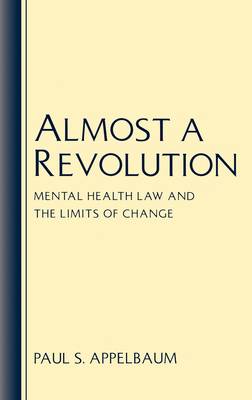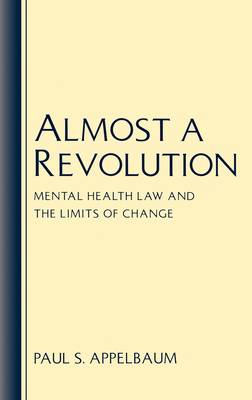
- Afhalen na 1 uur in een winkel met voorraad
- Gratis thuislevering in België vanaf € 30
- Ruim aanbod met 7 miljoen producten
- Afhalen na 1 uur in een winkel met voorraad
- Gratis thuislevering in België vanaf € 30
- Ruim aanbod met 7 miljoen producten
Zoeken
€ 159,95
+ 319 punten
Omschrijving
Doubts about the reality of mental illness and the benefits of psychiatric treatment helped foment a revolution in the law's attitude toward mental disorders over the last 25 years. Legal reformers pushed for laws to make it more difficult to hospitalize and treat people with mental illness, and easier to punish them when they committed criminal acts. Advocates of reform promised vast changes in how our society deals with the mentally ill; opponents warily predicted chaos and mass suffering. Now, with the tide of reform ebbing, Paul Appelbaum examines what these changes have wrought. The message emerging from his careful review is a surprising one: less has changed than almost anyone predicted. When the law gets in the way of commonsense beliefs about the need to treat serious mental illness, it is often put aside. Judges, lawyers, mental health professionals, family members, and the general public collaborate in fashioning an extra-legal process to accomplish what they think is
fair for persons with mental illness. Appelbaum demonstrates this thesis in analyses of four of the most important reforms in mental health law over the past two decades: involuntary hospitalization, liability of professionals for violent acts committed by their patients, the right to refuse treatment, and the insanity defense. This timely and important work will inform and enlighten the debate about mental health law and its implications and consequences. The book will be essential for psychiatrists and other mental health professionals, lawyers, and all those concerned with our policies toward people with mental illness.
fair for persons with mental illness. Appelbaum demonstrates this thesis in analyses of four of the most important reforms in mental health law over the past two decades: involuntary hospitalization, liability of professionals for violent acts committed by their patients, the right to refuse treatment, and the insanity defense. This timely and important work will inform and enlighten the debate about mental health law and its implications and consequences. The book will be essential for psychiatrists and other mental health professionals, lawyers, and all those concerned with our policies toward people with mental illness.
Specificaties
Betrokkenen
- Auteur(s):
- Uitgeverij:
Inhoud
- Aantal bladzijden:
- 248
- Taal:
- Engels
Eigenschappen
- Productcode (EAN):
- 9780195068801
- Verschijningsdatum:
- 9/06/1994
- Uitvoering:
- Hardcover
- Formaat:
- Genaaid
- Afmetingen:
- 163 mm x 244 mm
- Gewicht:
- 498 g

Alleen bij Standaard Boekhandel
+ 319 punten op je klantenkaart van Standaard Boekhandel
Beoordelingen
We publiceren alleen reviews die voldoen aan de voorwaarden voor reviews. Bekijk onze voorwaarden voor reviews.











